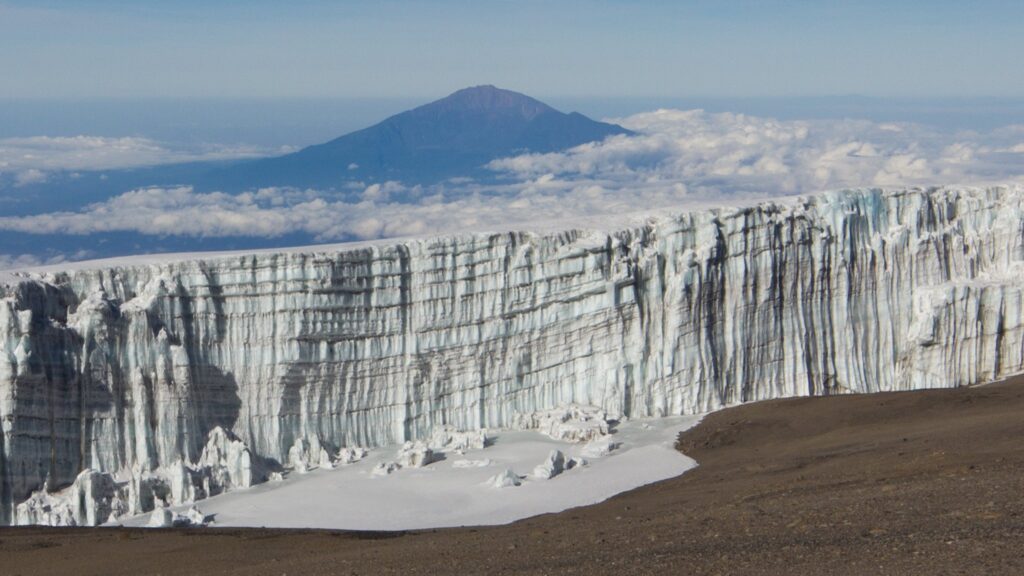The World-Meteorological-Organization(WMO) has labeled the decade from 2011 to 2020 as the hottest on record for both land and sea. A global weather body has projected that Mount Kilimanjaro, the highest peak in Africa, will lose its glaciers by 2040, highlighting how climate change is causing extreme events worldwide.
The World Meteorological Organization (WMO) declared the period from 2011 to 2020 as the hottest decade on record for both land and ocean, noting unprecedented glacier and ice sheet loss along with a significant rise in sea levels.
According to the WMO’s recent report, the continual increase in greenhouse gas concentrations contributed to record temperatures on land and in the oceans, intensifying the rapid melting of ice and the elevation of sea levels.
The report highlighted that glaciers experienced an unprecedented annual thinning of 1 meter,raising long-term water concerns for millions of people. Additionally, nearly all 19 primary glacier regions exhibited a consistent increase in negative values from 2000 to 2020.
“The Antarctic continental ice sheet lost nearly 75% more ice between 2011-2020 than it did in 2001-2010 – an ominous development for future sea level rise which will jeopardize the existence of low-lying coastal regions and states,” said the global body.
The report also indicated a rise in the atmospheric concentration of the three major greenhouse gases over the decade. The rates of ocean warming and acidification too have been on the rise, threatening the marine ecosystems.
Also Read : Exploring Incognito Mode: Navigating the Web with Enhanced Privacy
The WMO also raised concerns over rise in the global mean sea-level due to ocean-warming and loss of land ice-mass. Greenland and Antarctica lost 38 per cent ice during 2011-2020 than during the previous decade, it said.
The ice extent in Arctic sea continues to decline with the seasonal mean minimum being 30% below average,said the WMO.
The only silver lining was that the Antarctic ozone hole was smaller in 2011-2020 as compared to the previous two-decades. WMO said this indicates the success of the Montreal-Protocol,which was adopted in 1987 to tackle the depletion of the Ozone-layer.
However, climate change remains a real threat.
“Each decade since the 1990s has been warmer than the previous one and we see no immediate-sign of this trend-reversing. More countries reported record high temperatures than in any other decade. Our ocean is warming faster and faster and the rate of sea-level rise has nearly doubled in less-than a generation. We are losing the race to save our melting glaciers and ice sheets,” said WMO Secretary-General Petteri Taalas.
Also Read : Unlocking Privacy: Exploring the World of Incognito Mode











More Stories
India’s Active Covid-19 Cases Rise Above 2,700; Delhi Records First Fatality
Pak PM: India Fired Brahmos Before Our Retaliation
देहरादून: सूर्यधार रोड पर भिड़ीं गाड़ियां, शख्स को कुचलने की कोशिश; 9 गिरफ्तार